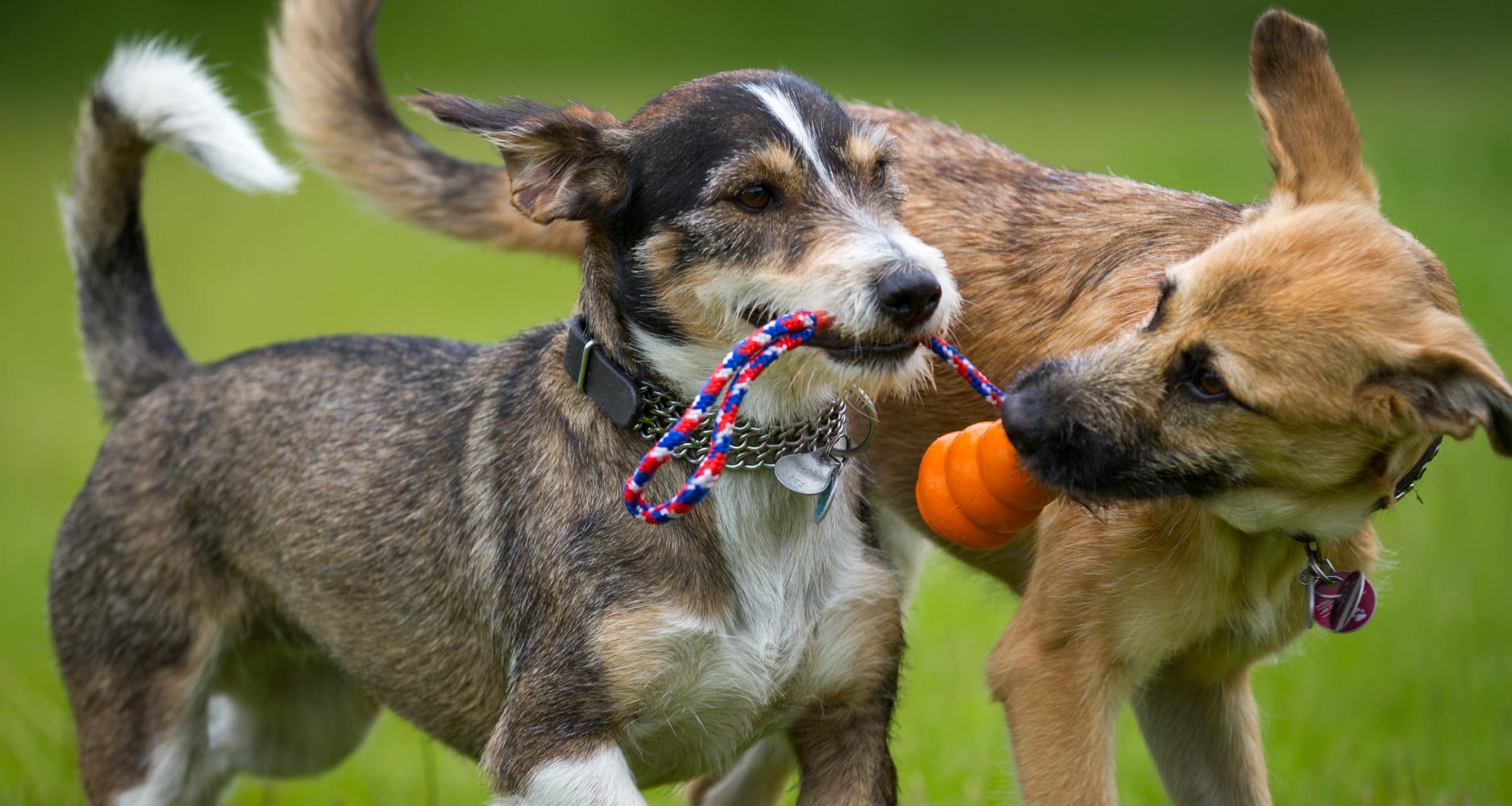TRAINING & BEHAVIOUR

VOTING BOOTH

TRENDING

LIONS FOUNDATION OF CANADA DOG GUIDES
Lions Foundation of Canada Dog Guides and its founding program, Canine Vision Canada, was established in 1983. It’s the largest school of its kind in Canada with its training school in Oakville and breeding facility in Breslau.
SOCIALIZING YOUR DOG

What is dog socializing and why does it matter? Find out!
SOCIALIZING YOUR PUPPY
The gap for effective learning closes at around 16 to 20 weeks, so start obedience training immediately.
During these first four to five months your curious and fearless puppy’s senses will be greatly stimulated. Unfamiliarity is good. It helps them feel comfortable in many spaces and situations.
This reduces the probability of developing anxiety and becoming fearful or aggressive in the future.
Handling: Allow people you trust to handle and cuddle your puppy every day. Contact should be pleasant and gentle. Give attention to different body parts and hold him in different positions.
Sounds: Introduce many sounds at different volumes (just not too loud, obviously). Start slowly and expose your puppy to noise in safe spaces.
Food Bowl Exercises: Your puppy should be taught from a young age that it’s OK when people approach, move or touch their food. “Interfere” every second day or so to make your puppy used to interaction around the food bowl.
Being Alone: Puppies need to learn from an early age how to handle being alone (away from people and other animals). A little bit of solitary time is required every day or he’ll develop separation anxiety.
To prevent this:
- Teach your puppy to feel comfortable in a crate
- Keep greetings and departures low-key
- Help your puppy associate your departure with good things
- Follow a “nothing in life is free” protocol
- Make sure your puppy gets plenty of exercise
Prevent Aggression: Playing rough is not beneficial. It often leads to behavioural problems or worse, aggression. A dog that’s been well trained knows who’s boss. Trust and respect are built on rules and awards.
Bring New People into the Mix: If possible, expose your puppy to new people and children every day. Each meeting should be fun and safe.
Prevent Biting: If your puppy bites, and it hurts, say “Ow!” loud and suddenly. Stop playing. Safe toys can be used to redirect biting. Don’t frighten (or even encourage) your pup by squeezing his mouth shut, yelling or pinning him down.
IMPORTANT: Don’t expose your puppy to strange dogs with unreliable medical histories or public spaces where they can pick up diseases before they’ve had all their vaccinations.
SOCIALIZING ADOLESCENT DOGS
Don’t stop socializing your dog after 20 weeks.
Keep Bringing New People into the Mix: Continual exposure to familiar, but especially unfamiliar, people is needed. Keep it pleasant. You want the idea of “Strangers are OK” to stick.
Keep Introducing Your Dog to Other Dogs; Goal: Your dog should learn how to behave well around other dogs. Take him for walks, go to dog parks, arrange doggy playdates and go for training/socializing classes.
Switch Up Your Walk Routes: Most dogs love going for walks. Try different routes, environments and road/dirt textures.
Being Alone: Just like puppies, adolescent dogs should spend some time alone each day. Shadowing (following you around) can be curbed by some healthy crate time.
Don’t Punish Fear: Aggression is often linked to fear which can lead to flight (flee) or fight (confront) mode. Don’t punish this behaviour. Remove him from the stressful situation and use a command (sit, stay, etc.) to calm him down.
Continue Handling Your Dog: Just because your dog is no longer a fluffy puppy, don’t stop handling him gently. Stop handling your dog / tell others to stop if you notice a stiff body, whites of eyes showing, a closed mouth or attempts to escape.
SOCIALIZING ADULT DOGS
Some believe that adult dogs can lead happy lives without socializing.
Play in Puppies VS Adult Dogs: Not all socially mature dogs (between ages one to three) enjoy off-leash play with large groups of dogs they don’t know. They may avoid the other dogs; keep close to their humans; or even growl and snap at other dogs. This behaviour is normal.
Playtime for Adult Dogs: If you want to encourage playtime for your adult dog, go slow. Introduce one dog at a time in a controlled, safe environment. Choose an owner you trust with a friendly, gentle dog and go for walks together keeping a small distance for comfort. Once they both seem relaxed allow some sniffing for a few seconds. The leashes should be loose as to not cause alarm. If you notice any tension, each owner should calmly call their dog. It’s important to use a friendly, relaxed voice.
Wagging tails and loose bodies are good. If you feel comfortable, you could remove the leashes, but do this in a fenced yard. Keep dragging the leash around during this short off-leash session and reward good behaviour with calm approval.
Leash Aggression: It’s upsetting and awkward when your dog barks and lunges towards other dogs (or even people) while on a leash. Even constant pulling can be frustrating.
Reasons why this happen:
- Dogs feel trapped
- Improper correction (by owner)
- Improper greeting (by other dogs)
- Greeting on a leash is unnatural (face to face vs side greeting)
How can you prevent leash aggression:
- Work on getting your dog’s attention before you go out
- Start walking at a distance from any dogs
- Manage your dog’s environment
- Go around other dogs in an arc
- If your dog has harmed another person or dog, it is recommended that you acclimate him to a basket muzzle for walks
Related Articles








